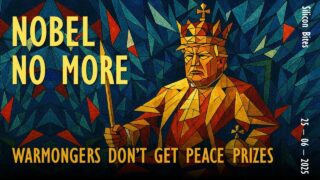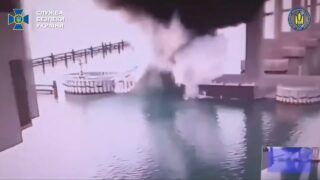
Ukrainian official reports over 1,000 acts of resistance to Russian occupation in Crimea
Since 2022, more than 1,000 acts of resistance have taken place in occupied Crimea, said Tamila Tasheva, Ukraine’s Permanent Representative in Crimea, during the Third Parliamentary Summit of the Crimean Platform, Ukraine’s Presidential Office reported.
The resistance movement in occupied Crimea has shown a broad spectrum of defiance against Russian occupation. It includes non-violent actions such as raising the Ukrainian flag, cultural expressions of identity, and grassroots movements like the Yellow Ribbon.
Additionally, the Crimean Solidarity movement has emerged as a significant human rights organization, supporting families of arrested activists and documenting human rights abuses.
On the other hand, more aggressive forms of resistance have also surfaced, including targeting equipment and intelligence gathering by partisan groups like Atesh.
Despite facing severe repression, including imprisonment and persecution, Crimeans continue to assert their identity and challenge the narrative that depicts Crimea as pro-Russian. This ongoing struggle reflects a commitment to Ukrainian sovereignty and emphasizes the broader fight for peace and stability in Europe amidst the enduring conflict.
“Over a thousand acts of defiance and solidarity with mainland Ukraine have occurred across Crimea since 2022. This reality is often overlooked, with many still clinging to Russian myths about pro-Russian Crimea. But Crimea, like all territories temporarily occupied by Russia, yearns for liberation,” Tasheva stated.
She emphasized that Russia’s war against Ukraine is not just a battle for Ukrainian statehood but for the future peace and stability of Europe as a whole.
Tasheva noted that Ukrainian President Volodymyr Zelenskyy’s Peace Formula and the victory plan offer a clear strategy for restoring justice and lasting peace.
“True peace requires more than diplomatic and political efforts. We must win over hearts and minds, spreading the truth about Crimea and the Crimean Tatars worldwide,” she added.
Tasheva also thanked Latvia, Lithuania, Canada, Poland, and Estonia for recognizing the deportation of Crimean Tatars in 1944 as an act of genocide.
Read more:











